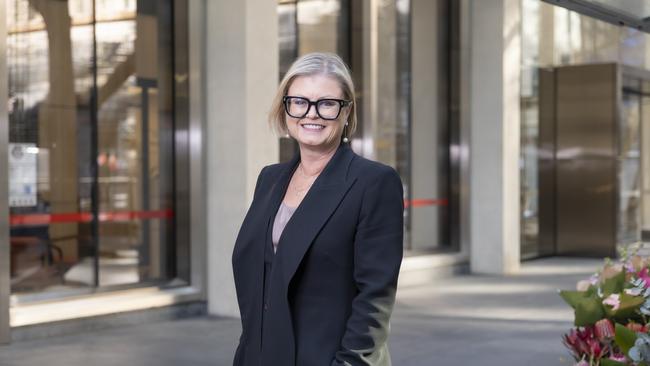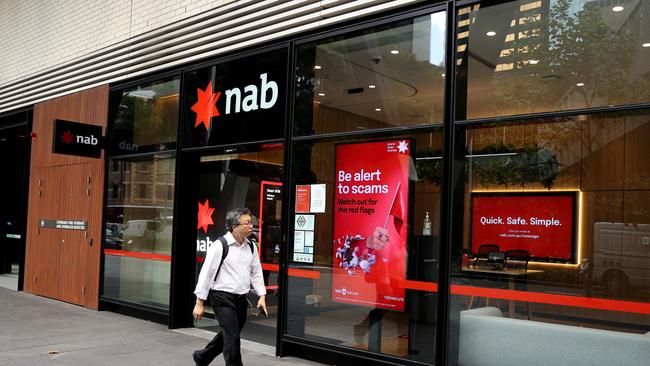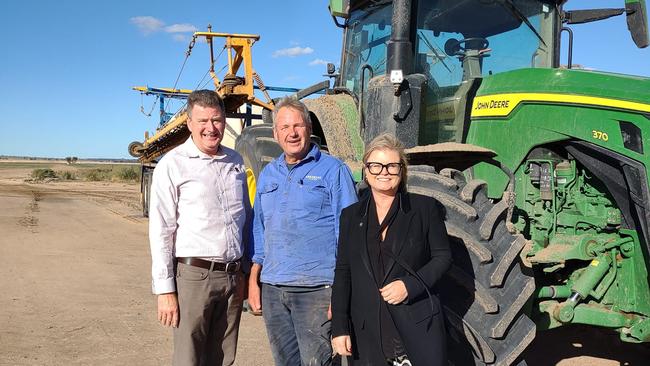Business confident despite labour shortages, costs: NAB
NAB’s new head of business banking Rachel Slade has toured around the country the past few weeks to gauge sentiment among Australia’s big and small businesses.

Businesses are growing more confident on the economic outlook, but labour shortages and cost constraints remain a headwind, according to the nation’s largest business lender.
National Australia Bank’s new group executive for business and private banking, Rachel Slade, has spent the past five weeks courting the lender’s business clients and gauging sentiment as Australia navigates slowing growth alongside high inflation and rates.
“Businesses are doing the same as households; they’re adapting to the challenges in the market. They’re still investing, particularly in equipment, as they prepare for (the recovery), but their challenges haven’t changed over the last couple of years,” Ms Slade told The Australian.
“(They’re facing) labour shortages – and that’s across industries – so both lower skilled workers and then specialist workers. It’s hard to get doctors, it’s also hard to get workers for construction projects at a competitive rate because everybody’s fighting for the same labour.
“And then there’s cashflow. All these businesses are working in an ecosystem with other businesses. So everybody’s trying to manage their terms and their contracts, but they’re finding ways to work through that.”
WA, where Ms Slade is currently meeting with some of NAB’s clients, is “a different story”, she said.
“It’s very, very buoyant here, the focus (in WA) is very much on growth.”

In her first major interview since stepping into the role on April 29, Ms Slade said she had no plans for any big pivot in the business bank’s strategy, with the lender focused on growing “at the right pricing and the right returns”.
NAB has long been the nation’s biggest business bank, but peer Commonwealth Bank, in recent years, has set its sights on the lucrative business lending market, growing above market share and threatening NAB’s place at the top. Macquarie, Westpac and ANZ Bank have all had a similar focus on growing business lending.
NAB is keeping its discipline and is comfortable growing at a solid clip while looking after its existing clients, Ms Slade said.
“The Australian market has always been competitive. Our focus on specialisation – and we’ve got great businesses that focus on agri, health, professional services, are real strengths for us. And you always want a balance between chasing new business and looking after your existing customers,” she said.
“Our main focus is supporting our customers and delivering at the right pricing and the right returns. So, we’re, we’re pretty comfortable with how we’re going.”
After trekking across the country, from Melbourne, to Sydney, then Queensland and on to WA, to get herself in front of NAB clients, Ms Slade said businesses were focused on costs and inflation, but less caught up with the prospect of rates staying higher for longer.

“They’re certainly focused on costs, on their input costs. And obviously interest rates are part of that, inflation is another part. Consumers have started to see price increases start to stabilise … and businesses are probably the same, they’re trying to stabilise their input costs, because they don’t want to be having to pass on those costs to their end consumers either,” she said.
“(Interest rates) are not coming up as a big issue in conversation. A lot of businesses, if you’re a grain farmer, say, you’re more likely to be watching the grain price than the cash rate, or you’re likely to be watching which markets are opening or closing, or the weather.”
Ms Slade was promoted to head NAB’s business lending arm in April, shortly after her predecessor, Andrew Irvine, took on the top job at the bank.
Mr Irvine at the time spoke of the growth opportunities for the business segment.
“We see plenty of opportunities to build on NAB’s leadership in areas such as business lending, particularly to small and medium businesses, while continuing to deliver better outcomes for customers and colleagues,” he said.
Mr Irvine led the business bank for three and a half years, from September 2020, until he took on the chief executive role once Ross McEwan stepped down in April.
He was credited with driving NAB’s lift in deposits from small businesses.






To join the conversation, please log in. Don't have an account? Register
Join the conversation, you are commenting as Logout